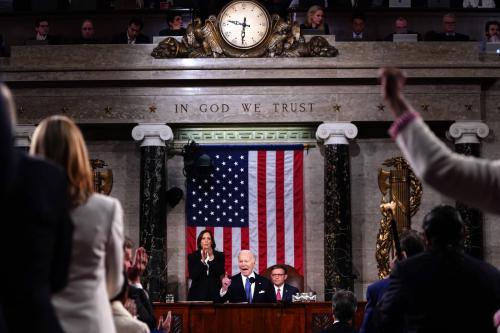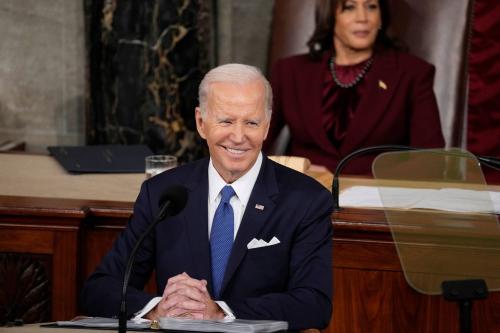The announcement that eight key Democratic and Republican Senators have reached agreement on a sweeping overhaul of U.S. immigration policy is the latest sign of how dramatically the landscape has shifted. With President Obama getting 72 percent of the Latino vote in the 2012 election and Hispanics becoming a larger percentage of the electorate in crucial swing states, it is time for legislators to step up and address this issue. For the first time in many years, both parties have clear incentives to take meaningful action.
But immigration reform is not just a question of shifting political dynamics. A paradox of the contemporary situation is that in a time of high unemployment, a number of fields report a shortage of American workers and problems filling key positions. For example, even as the country as a whole experiences nearly 8 percent unemployment, high-tech fields, advanced manufacturing, and medical specialties have unemployment rates as low as 3, 4, or 5 percent. And on the labor-intensive side of the economy, agricultural companies report difficulty finding workers to pick vegetables and fruits, and hotels and restaurants indicate they have problems filling key positions.
In many of these sectors, there are worker shortages that cannot be filled by available American workers. The reason for this is a mismatch in worker supply and demand across industry sectors and geographic areas. Between retirements, demographic gaps, geographic differentials, and the failure of educational institutions to deliver employees in key sectors, the United States has worker shortages at a time of high national unemployment.
There are two potential ways to fill these gaps: The first is to retrain American workers to ensure that their skill sets match the needed requirements. The second is to take advantage of foreign workers with the skill set and mobility to fill the existing gaps, which I lay out extensively in my immigration policy book Brain Gain. Both steps are needed to address our current situation.
In the coming debate over immigration reform, we need to keep in mind the economic rationale for changing our system. At both the high and low skills end of the marketplace, we need immigrants who will fill jobs, launch businesses, and contribute to long-term economic prosperity. With half of Silicon Valley companies having an immigration founder or co-founder, the economic argument is very clear. Providing a pathway to citizenship for those who already are here and adopting measures that help highly educated immigrants in science, technology, engineering, and math stay here are vital for American prosperity. Congress should seize the moment and take action in this crucial area.



Commentary
Time to Address Immigration Reform
January 28, 2013